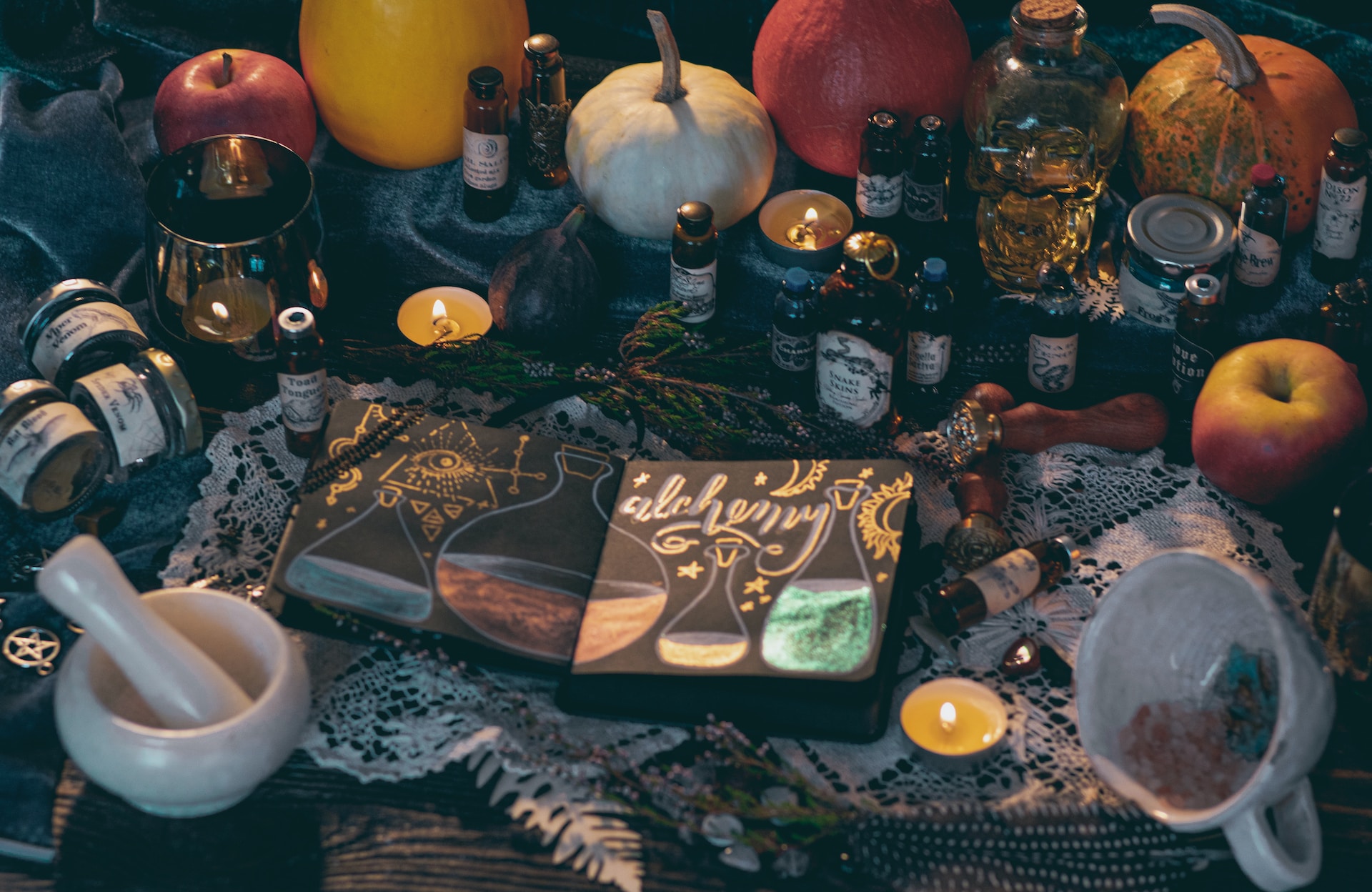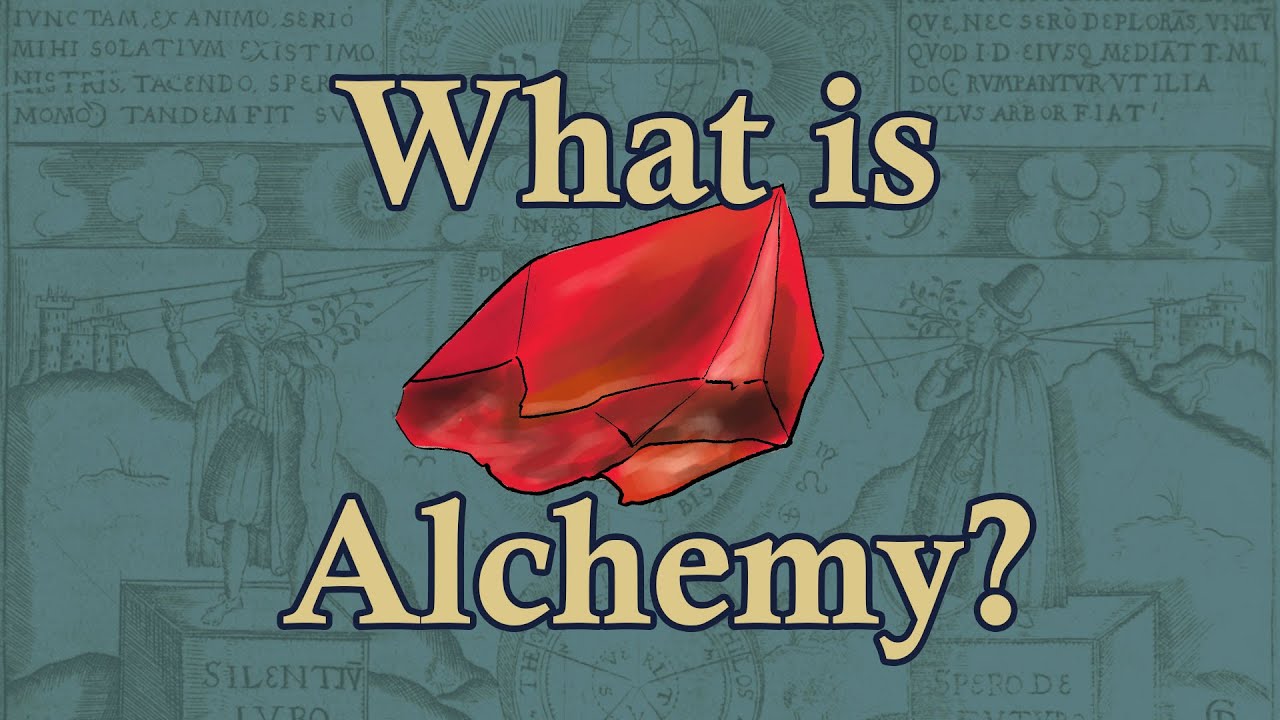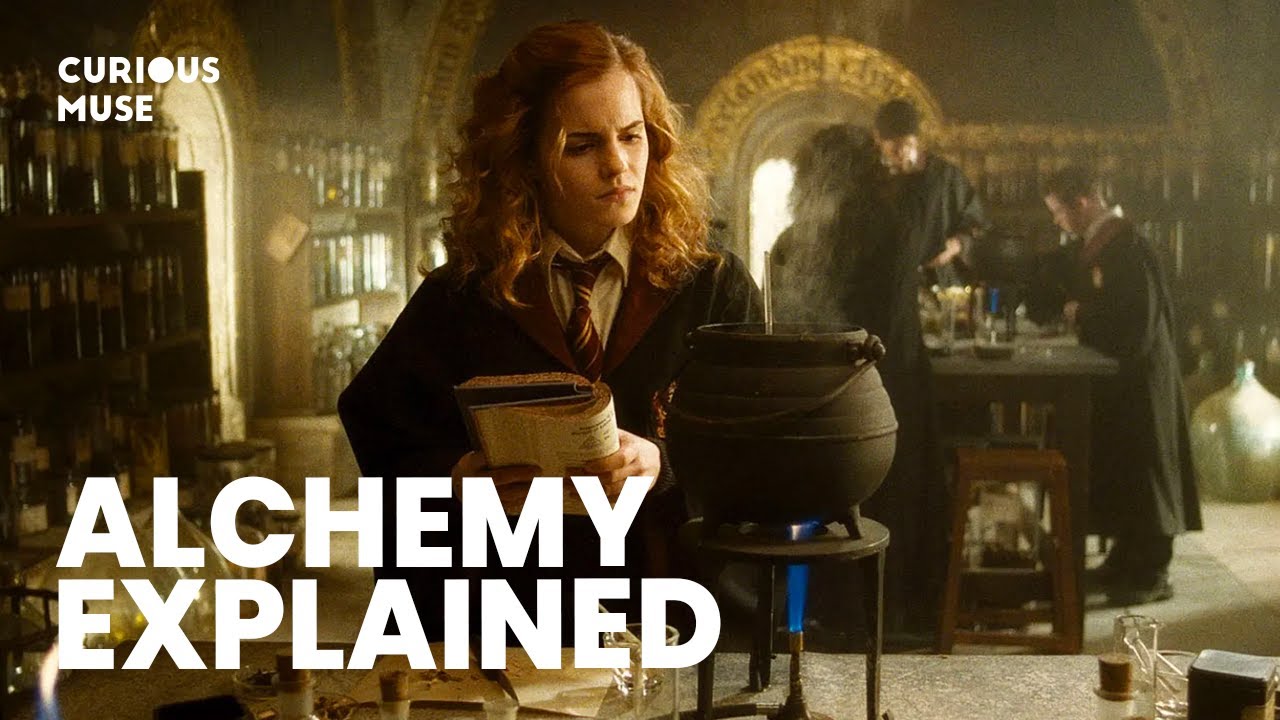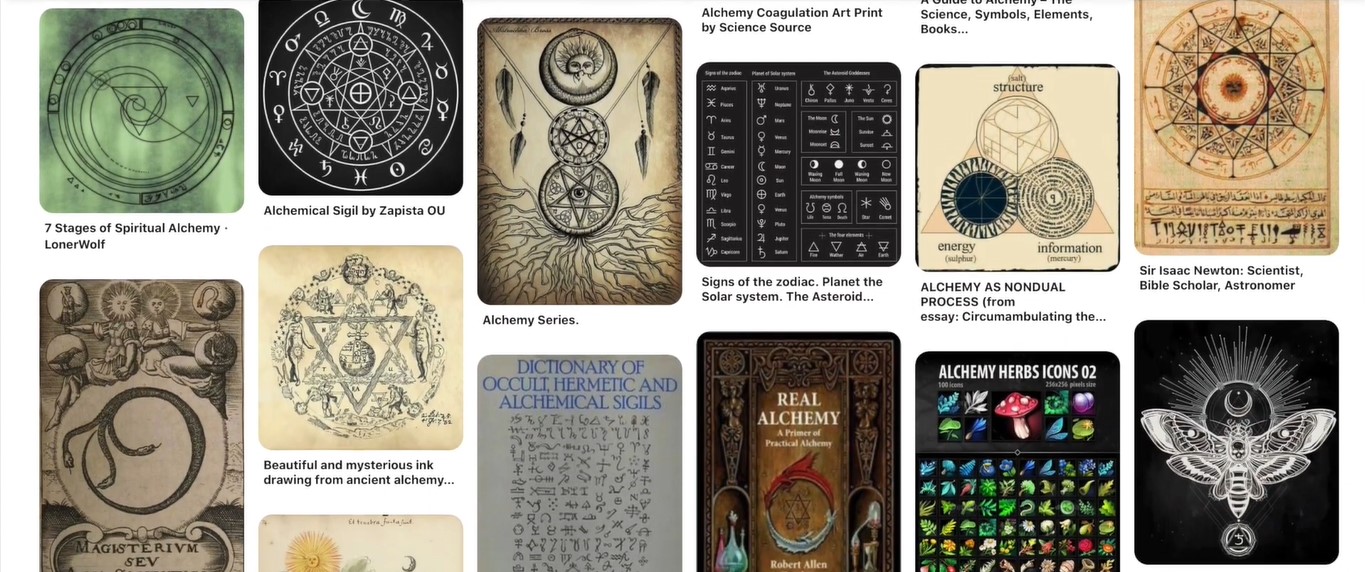The History Of Alchemy And Its Influence On Modern Science
Mysticism, spirituality, and modern chemistry. Sounds like a weird combination, huh? Wait until you learn about the history of alchemy and its influence on modern science. Though generally perceived to be a pseudoscience, alchemy, in fact, contributed to the development of some areas of science.
Author:Aurora SmithReviewer:Sonia RavenwoodApr 27, 20239 Shares351 Views

It would be a delight to go somehow back in time to know the history of alchemy and its influence on modern science.
Alchemy is a fascinating subject that has captured the imaginations of scholars and laypeople alike for centuries.
It is an ancient philosophical discipline that emerged in various civilizations.
Alchemists - people who practiced alchemy - aimed to:
- transform base metals into noble ones
- discover the elixir of life and the philosopher’s stone
- uncover the secrets of the universe
The philosopher’s stone is a legendary substance sought after by alchemists for its supposed powers, including:
- the ability to heal any illness
- prolong life indefinitely
- grant spiritual enlightenment

What is Alchemy?
What Is Alchemy?
Alchemy is an ancient practice that seeks to transform base metals into noble metals such as gold, as well as to discover the so-called philosopher’s stone.
It was a protoscientific discipline practiced in various cultures throughout history, including ancient:
- China
- Egypt
- Greece
- India
The term “protoscientific discipline,” by the way, refers to a field of study or inquiry that existed before the scientific method was developed. It has some similarities to modern science but lacks some of the key characteristics that define it.
Aside from alchemy, other protoscientific disciplines include areas such as astrologyand natural philosophy.
Going back, the word “alchemy” is derived from the Arabic word al-kimiya, which in turn comes from the Greek word chemeia, meaning “art of transmutation.”
Alchemy reached its peak in Europe during the Middle Ages and the Renaissance.
It is often associated with these three:
- mysticism
- symbolism
- spiritualism
Why?
It’s because alchemists believed that the process of transmutation of metals was not only physical but also had psychological and spiritual implications.
To purify and manipulate substances, alchemy involved the use of various laboratory techniques, such as:
- crystallization
- distillation
- sublimation
Although alchemy is often viewed as a precursor to modern chemistry, it is also recognized as a philosophical and cultural movement that had a significant impact on art, literature, and science.
Today, alchemy is studied by historians, philosophers, and practitioners of spiritual and esoteric traditions.
The next two sections will be about the history of alchemy and its influence on modern science.
The History Of Alchemy And Its Influence On Modern Science Today
The origin of alchemy is uncertain, but it is believed to have originated in ancient Egypt and spread to the Hellenistic world, where it developed into a more systematic and philosophical practice.
The term “Hellenistic” refers to the period of history that followed the conquests of Alexander the Great in the 4th century BCE and lasted until the Roman conquest of Egypt in 30 BCE.
The history of alchemy is a long and complex one, spanning several centuries and continents. Here are some of the key periods in its history:
Ancient Greece And Egypt (3000 BCE To 500 BCE)
Alchemy has its roots in ancient Greece and Egypt, where it was known as “the art of the blacksmith.”
It was closely tied to metallurgy and the belief that metals had spiritual and mystical properties.
The Greek philosopher Democritus is often credited with developing the theory of atoms, which played a crucial role in alchemy.
Islamic Golden Age (750 CE To 1258 CE)
During the time, alchemy flourished in the Islamic world.
Islamic scholars translated ancient Greek and Egyptian texts on alchemy into Arabic and developed new techniques for conducting experiments.
The most famous alchemist of this period was Jabir ibn Hayyan, also known as Geber, who wrote extensively on the subject.
European Middle Ages (1200 CE To 1600 CE)
Alchemy became popular in Europe during the Middle Ages, and many alchemists sought the philosopher's stone and the elixir of life.
This period saw the rise of alchemical societies, such as these two:
- Rosicrucians
- Hermetic Order of the Golden Dawn
The most famous alchemist of this period was the Swiss physician Paracelsus.
He rejected the idea of the philosopher’s stone and instead emphasized the importance of chemical processes.

Renaissance (1400 CE To 1700 CE)
During the Renaissance, alchemy underwent a transformation, becoming more focused on science and experimentation.
The famous alchemist and philosopher Isaac Newton was a proponent of alchemy and spent much of his life studying it.
However, as modern chemistry developed, alchemy began to lose its popularity and was eventually replaced by the scientific method.
Modern Era (1700 CE To Present)
Alchemy still exists today, but it has been largely replaced by modern chemistry. However, some people still practice alchemy as a spiritual or philosophical pursuit.
The philosopher Carl Jung saw alchemy as a metaphor for the process of individuation, or the journey towards self-realization.
Alchemy gradually fell out of favor as modern chemistry and scientific methods emerged in the 17th and 18th centuries.
Today, its influence can still be seen in various cultural and spiritual traditions, as well as in the language and symbolism of modern science.

Alchemy in 8 Minutes: Is It Science or Magic?
Alchemy And Modern Science
The practice of alchemy was closely linked to the development of metallurgy, as alchemists sought to purify metals and manipulate their properties.
They also developed various chemical techniques, apparatus, and terminology that would later be incorporated into modern chemistry.
Although alchemy is often dismissed as a pseudoscience, it had a profound influence on the development of modern science in several ways, namely:
1. Experimental Method
Alchemists were some of the first to use experimental methods in their quest to turn base metals into gold or create the elixir of life.
They developed laboratory techniques and equipment such as distillation, filtration, and crucibles that are still used in modern chemistry.
2. Chemical Elements
Alchemists were also the first to recognize and study many of the chemical elements that we know today.
They identified metals (e.g., gold, silver, copper, and iron) and discovered new substances (e.g., sulfur, mercury, and arsenic).
3. Chemical Reactions
Alchemists studied chemical reactions and the transformation of matter, which laid the foundation for modern chemistry.
They believed that substances could be transformed through a process of purification and transmutation.
This foreshadowed the modern understanding of chemical reactions and the conservation of mass.
4. Medicine
Alchemists were also interested in developing medicines and remedies.
Their work contributed to the development of modern pharmacology and medicine.
5. Metaphysics and Symbolism
Alchemists developed a complex metaphysical and symbolic language that influenced modern philosophy and psychology.
They believed that the transformation of matter was a reflection of the transformation of the self.
In addition, they used symbols such as the philosopher’s stone and the alchemical marriage to represent spiritual and psychological concepts.
Now there goes the history of alchemy and its influence on modern science.
Alchemy may have been an imperfect and incomplete science, but its influence on modern science and philosophy cannot be denied.
Note that alchemists paved the way for:
- experimental methods
- medicine
- modern chemistry
Their symbolic language and metaphysical ideas continue to inspire thinkers today.

People Also Ask
Is Alchemy Used In Real Life?
Alchemy is no longer practiced as a scientific discipline in the modern era.
Nevertheless, its ideas and practices have had an impact on various fields, including chemistry, physics, and psychology.
What Scientist Believed In Alchemy?
Aside from Isaac Newton and Paracelsus, other notable scientists who believed in alchemy include:
- Robert Boyle
- Galileo Galilei
- Johannes Kepler
Do We Consider Alchemists As Scientists? Why Or Why Not?
Alchemists are often considered as the forerunners of modern chemistry, but whether or not they are considered scientists is a matter of debate.
Generally speaking, whether alchemists are considered scientists depends on one’s definition of the term “science.”
If science is defined narrowly as the systematic study of the natural world using empirical methods and the scientific method, then alchemy might not meet this definition.
However, if science is defined more broadly to encompass any systematic pursuit of knowledge, then alchemy might be considered a precursor to modern science.
Conclusion
How important is it to know about the history of alchemy and its influence on modern science?
Well, for one, we can learn how alchemy became an important part of the history of science.
Another is that despite its mystical and sometimes fraudulent reputation, alchemy made significant contributions to the development of modern science, particularly in the fields of chemistry, medicine, and physics.
Also, its influence can be seen in many aspects of modern life, from the medicines we take to the technologies we use to explore the universe.
The history of alchemy and its influence on modern science tells us that though alchemy may be an ancient and esoteric practice, its legacy lives on in the modern world.

Aurora Smith
Author
Aurora Smith is an expert with over 8 years in psychics, with a passion for tarot reading.
She holds a Bachelor of Arts in Anthropology from Stanford University, bringing a strong academic foundation to her work in exploring mystical phenomena.
With her expertise in psychics, Aurora delves into tarot readings and magical practices, providing insightful content that engages and enlightens readers.
Her writing style is characterized by clarity and engagement, making complex concepts accessible and intriguing for readers.
Outside of her writing pursuits, Aurora enjoys delving into the mysteries of the supernatural world and practicing tarot readings.

Sonia Ravenwood
Reviewer
Sonia Ravenwood is an accomplished writer with a profound passion for exploring spirituality, magical practices, and the significance of numbers.
She has published numerous works exploring spiritual growth, magical practices, and the significance of numbers on reputable platforms.
Her insightful content reflects her expertise and dedication, making complex concepts accessible and engaging for readers.
Prior to focusing on writing, Sonia held various roles in content creation and marketing, honing her skills in communication and storytelling.
Latest Articles
Popular Articles
